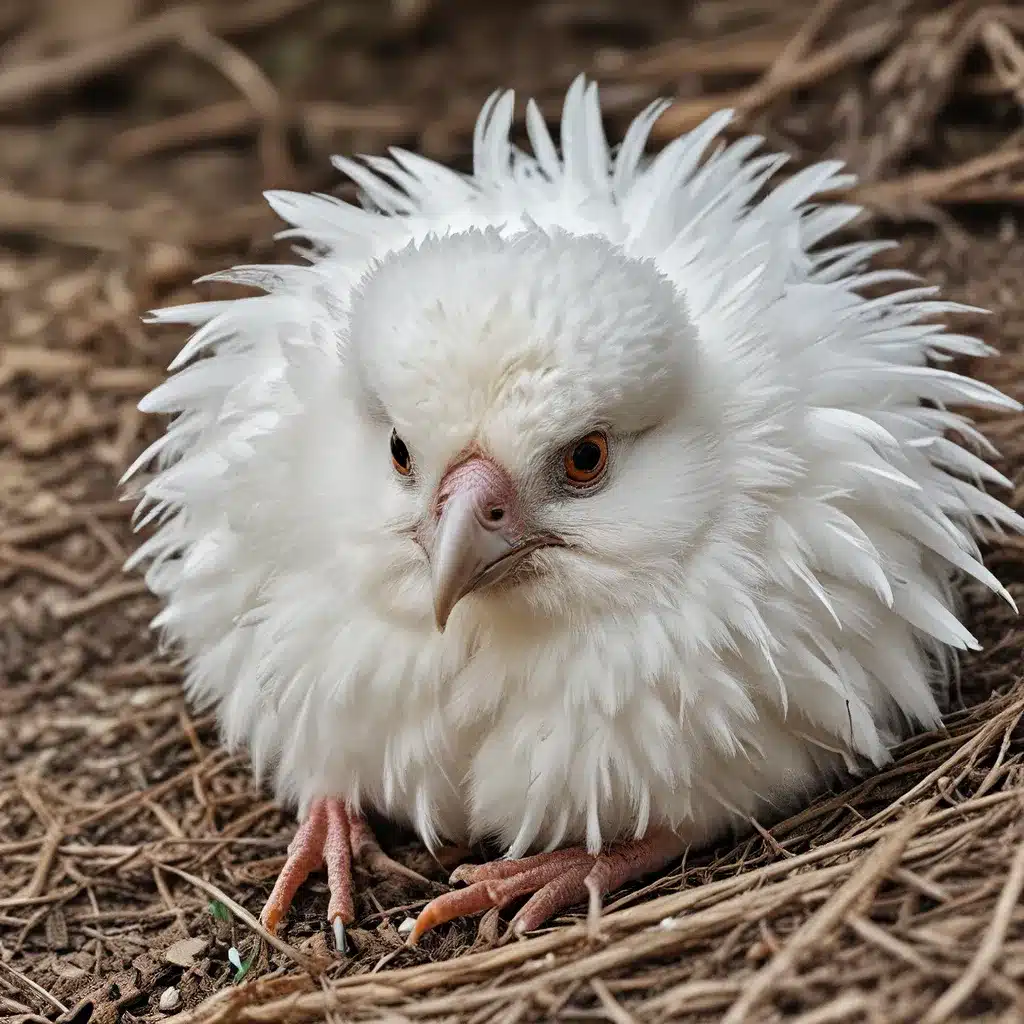
A Crash Course in Caring for Our Avian Companions
Imagine this scenario: You’re out for a hike, admiring the breathtaking views, when suddenly you spot a small, feathered creature lying motionless on the trail. Your heart sinks – it’s a baby bird, likely fallen from its nest. What do you do?
For many of us, our first instinct is to rush over and scoop up the poor thing, intent on saving its life. But when it comes to our feathered friends, that well-meaning response could actually do more harm than good. Wild birds, even the seemingly helpless hatchlings, require specialized care and attention that the average person simply isn’t equipped to provide.
That’s where organizations like Feathered Friends come in. As a leading pet rescue and adoption service, they’ve seen it all when it comes to injured or orphaned avian patients. And let me tell you, these delicate creatures have some unique first aid needs that set them apart from our furry four-legged friends.
Assessing the Situation
So you’ve stumbled upon an injured or abandoned bird – now what? The first step is to assess the situation calmly and carefully. Is the bird visibly injured, with broken wings or obvious trauma? Or does it appear unharmed, simply separated from its nest? Determining the severity of the situation will guide your next actions.
Tip: Resist the urge to immediately scoop up the bird. Sudden movements and human contact can be extremely stressful for wild birds, potentially causing them to thrash and further injure themselves.
If the bird appears seriously wounded, your best course of action is to contact a local wildlife rehabilitation center or avian veterinarian right away. These trained professionals have the specialized knowledge and facilities to provide the proper medical care. Attempting DIY first aid, no matter how well-intentioned, could do more harm than good.
On the other hand, if the bird seems relatively unharmed but is clearly out of its nest, you may be able to lend a gentle hand. The key is to move slowly and minimize your interaction. Gently scoop the bird into a secure container – a small box or paper bag works well – and keep it in a quiet, dark space until you can transport it to the nearest wildlife rehab center.
Feathered Friends has a network of trusted partners across the country, so you can quickly locate the nearest facility that’s equipped to care for your feathered friend in need.
Unique Avian Anatomy
Now, you may be wondering, “What makes bird first aid so different from caring for other pets?” The answer lies in their unique avian anatomy and physiology. Unlike mammals, birds have a number of distinct features that require specialized treatment.
For starters, their respiratory system is quite delicate, with air sacs that can be easily damaged. Even a seemingly minor injury can compromise a bird’s ability to breathe properly. And their hollow, lightweight bones are incredibly fragile – a simple fall can result in painful fractures.
Did You Know? Birds also have a specialized digestive system that relies on a gizzard to grind up food. Improper feeding can wreak havoc on their ability to properly process nutrients.
Imagine trying to splint a hummingbird’s wing or administer medication to a parakeet. It’s a far cry from the basic first aid techniques you might use on your dog or cat. That’s why it’s so important to leave the care of injured birds to the experts.
Feathered Friends to the Rescue
Feathered Friends has built a reputation as a trusted resource for avian rescue and rehabilitation. Their team of experienced wildlife rehabilitators and veterinarians is dedicated to providing top-notch care for injured, orphaned, and displaced birds of all shapes and sizes.
Underline: Whether it’s a majestic eagle, a vibrant parrot, or a delicate hummingbird, the compassionate staff at Feathered Friends treats each patient with the individualized attention they deserve.
One of the key ways they ensure positive outcomes is through their extensive network of specialized care facilities. By partnering with avian veterinary clinics, wildlife rehab centers, and even zoos across the country, Feathered Friends can ensure that every feathered friend receives the tailored treatment they need.
But their commitment to avian welfare doesn’t stop there. Feathered Friends also operates a robust adoption program, helping to find loving forever homes for birds who have been rescued, rehabilitated, and are ready to spread their wings in a safe, nurturing environment.
Feathered Friends understands that birds aren’t just pets – they’re intelligent, social creatures that require specialized care and attention. That’s why they go the extra mile to educate the public on responsible bird ownership and the unique needs of our feathered companions.
Preparing for the Unexpected
Of course, even the most diligent pet owners can find themselves facing an unexpected avian emergency. That’s why it’s crucial to be prepared with the proper first aid knowledge and supplies.
Tip: Keep a bird-specific first aid kit handy, stocked with items like non-stick gauze, antiseptic wipes, and an avian-safe heat source. And be sure to familiarize yourself with basic techniques like crop feeding and wing wrapping.
But perhaps the most important preparation is knowing when to call in the experts. As tempting as it might be to try and play veterinarian, attempting complex medical procedures on your own can have devastating consequences for a delicate bird.
So, the next time you encounter a feathered friend in need, resist the urge to play hero. Instead, remain calm, assess the situation carefully, and get that precious patient the professional care they require. With the right support, even the most vulnerable birds can make a full recovery and find the loving homes they deserve.
After all, at Feathered Friends, they believe that every creature, no matter how small or fragile, deserves a second chance. So let’s do our part to ensure our avian companions get the first-class first aid they need.


